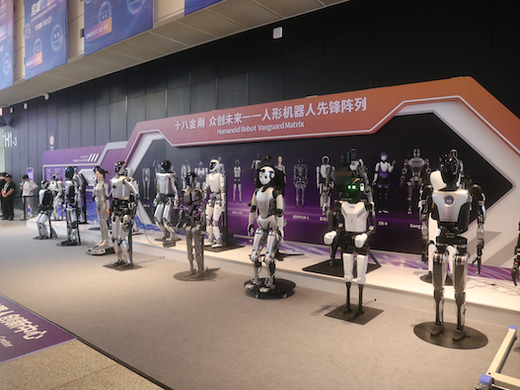Driven by the exponential growth in computing power and the digitization of things, artificial intelligence and robotics are poised to transform the economy. While these technologies are likely to boost productivity and generate significant wealth, their potential impact on the labour market is concerning, with some estimates suggesting that nearly half of all existing jobs could be automated in the next two decades. What is almost certain is that these technologies will further increase inequality: workers with skills that are complementary to these new technologies will benefit, while those with skills that are substitutes will face dimming job prospects. The extent and speed of the transformation remains uncertain. This paper presents several possible scenarios for the future of work and draws on the Industrial Revolution to offer a historical perspective. It ends with a discussion of different policy options that could be deployed. Foremost, it highlights the urgent need for further international collaboration to broaden the tax base, both because tax avoidance is likely to become a bigger problem as wealth and income become increasingly concentrated and mobile and because of the likely need to expand the social safety net in the face of potentially massive and long-lasting disruptions.


